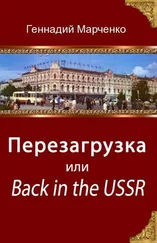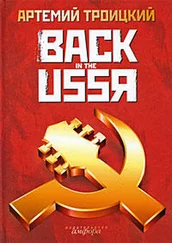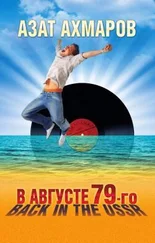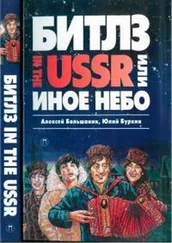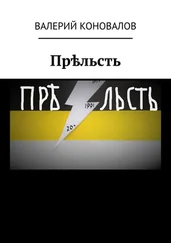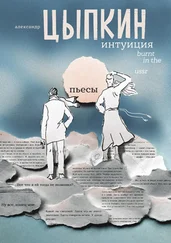“Why?”
“It passes the time. I sent one to Smena once,” I babble, “but they rejected it with apologies. They said one of my words was derived from Church Slavonic.”
“Hmm… Why were you trying to cross the Soviet border?”
“Who me? Do I look like a madman? I don’t know a word of Farsi and I can’t run.”
The officer glances at my leg. I sense that he does not believe I’m guilty. But once the wheels of justice are in motion there is no going back.
‘Let’s hope no one trod on the judge’s foot in the bus,’ I think to myself on the morning of my trial. The length of my sentence will depend on the judge’s mood. It’s obvious I’m not an Iranian spy, but I am a vagrant and idleness is a crime against the very foundation of the Soviet state.
My trial lasts a few minutes. I refuse my right to a final word and this probably pleases the judge, allowing him to get away to his lunch. He gives me a year of strict-regime prison with compulsory treatment for alcoholism. There is no hope of remission. I am not overjoyed with this sentence but neither am I tearing my hair out. By this time I know I can survive camp. I only have to remember not to think myself smarter than the others or get mixed up in other people’s business. If I share my tobacco down to the last roll-up and refuse to give way to self-pity then prison life will be tolerable. Still, I feel apprehensive as I await my transfer, wondering what my fellow inmates will be like.
The prisoner we call Death Number Two glares at me: “Hey, slurper! Are you from Kolyma or what?”
I shake my head. The way you drink your chefir reveals your camp history. ‘Kolyma’ drinkers swallow their chefir in three gulps; ‘Norilsk’ drinkers in two.
“Never mind, let’s have another brew,” Death Number Two picks up his teapot and runs over to the Titan boiler in the corner of our workshop. He rinses the pot, pours in some hot water, sprinkles in a large heap of green tea and runs back to his bench to put the lid on before the tea cools. We huddle together in a circle, smoking rough tobacco rolled in newspaper while we wait for the chefir to brew. The anticipation is even better than the chefir itself. When it is ready Death carefully fills a bowl and pours it back into the teapot, so that the leaves settle and do not get into our mouths.
“Have a punch in the liver, Vanya,” Death hands me a cup.
I have to dope myself with chefir or I won’t be able to do a day’s work. I feel like death myself when I awake in the morning. My head and muscles ache, my guts churn and my skin crawls. After a few mouthfuls of chefir I return to life. I team up with a group of fellow chefirists, for only the very strong or the completely despised can survive on their own.
The huge workshop buzzes like a million beehives. Dust and tobacco smoke hang so thick you can see no further than ten metres. The midday heat rises to 45 degrees so everyone strips to the waist. Bodies gleam with sweat as they bend over their sewing machines.
I work on my own machine, making gloves. This is almost freedom as it saves me from the production line. I can work at my own pace and it is not hard to meet the quota of 72 pairs a day. My pay goes straight to the camp for my keep. The few roubles I earn for exceeding the quota pay for tobacco and tea. Prisoners with wealth and influence buy their quota from other zeks. Freed from the obligation to work, they lounge about smoking opium and hashish.
Most of Ashkhabad’s 1,500 inmates take opium. It is brought in by visitors, delivery-men or sometimes thrown over the fence at a pre-arranged spot. Even the guards will bring in drugs for a large enough bribe. Indian hemp grows in the camp yard. As soon as the buds appear they are picked, dried and smoked in joints.
You can buy drugs in the camp bazaar along with anything else you need. Zek traders set up stalls outside the barracks and sell envelopes, stamps, tobacco, tea, socks and even tomatoes, potatoes and rice. Some of the Turkmen zeks never use the canteen, preferring to cook their own pilaus on bonfires outside the barracks. You can always supplement your diet with cans of condensed milk, traded for opium by tubercular addicts who have climbed over the fence from the hospital zone.
The Turkmen and Uzbeks swallow their opium with green tea. Sometimes they spear a ball on some wire and heat it over a flame. Then they put their heads under a newspaper funnel to inhale the smoke. When a powerful Turkmen is due for release he cooks up a big pilau and stirs in opium and hashish. Friends take their turns with the spoon in strict pecking order.
An old Turkmen is brought into our cell. As soon as the guards have left he shuffles into a corner, squats down and begins to sing endless plaintive dirges. As he sings he rocks back and forth on his heels, sometimes so violently that he keels over onto the floor. He seems to be a lunatic, but we begin to suspect that the old Turkmen babai is in fact as high as a kite. Everyone racks their brains trying to work out how he got hold of his drugs. He would have been carefully searched so he couldn’t have brought them in from the outside. We keep a close watch on the old man and notice that every so often he breaks off his lament, chews on the sleeves of his caftan, then rolls his eyes heavenwards and resumes his keening. After hours of questioning he confides in another Turkmen zek that he was forewarned of his arrest and so he prepared himself by boiling up opium and soaking his clothes in the solution.
When the rest of the cell discovers the secret of the babai they tear off his caftan, rip it to shreds and eat it. Everyone is off their heads for the next two days. I try a bit but it has little effect on me; I have not acquired a taste for opium.
“Death,” I remark, “it seems the Turkmen can sing for 24 hours a day and about anything at all. If he sees a camel train passing, he’ll sing,
The first camel goes by,
The second goes by,
The third goes by…
“When the whole train has passed he sings,
And at the back a little camel goes by,
And blood drips from his hooves.
Oh! If only someone could see him!
They would weep tears of pity!
“I have never heard one cheerful song. They’re all mournful.”
“Ah,” replies Death, “people say the Italians are the songbirds of the world, but they’re nothing compared to the Turkmen. They don’t speak much; their philosophy is all in their songs.”
* * *
Most of Ashkhabad’s inmates have been sentenced for drug-related crime. Almost every Central Asian adult smokes hashish but there are far fewer addicts among them than amongst the Russians and other Europeans. For centuries the locals used hashish and raw opium but widespread addiction only appeared with the Russians.
As most of Turkmenistan is desert, drugs are brought in from Kyrgyzia, which has a more favourable climate for hemp and poppies. Whole villages are devoted to their cultivation. Smugglers also bring in drugs from Iran and Afghanistan. The mafia who control the narcotics trade don’t usually take drugs themselves and mostly employ outsiders as couriers. Although the police are astonishingly inefficient, they have to catch a few smugglers, which makes it a dangerous business. You get five years for a small quantity and 15 for larger amounts. You might even be shot.
A man called Lazarev works on a machine near me. Although he comes from a family of Old Believers [35] The Old Believers were a sect that broke away from the Russian Orthodox Church in the seventeenth century. Members were supposed to renounce alcohol and tobacco.
he’s been a tramp and an alcoholic for much of his life. Lazarev tells me how he ended up in camp. “One day a guy came up to me at a beer stall and bought me some drinks. We got talking and he asked if I wanted to make some money.
Читать дальше
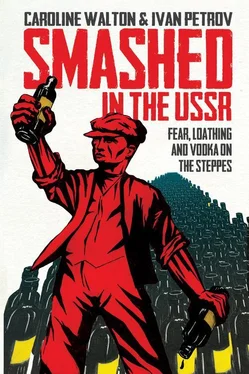
![Геннадий Марченко - Перезагрузка или Back in the Ussr. Книга 1. [СИ]](/books/53319/gennadij-marchenko-perezagruzka-ili-back-in-the-uss-thumb.webp)
